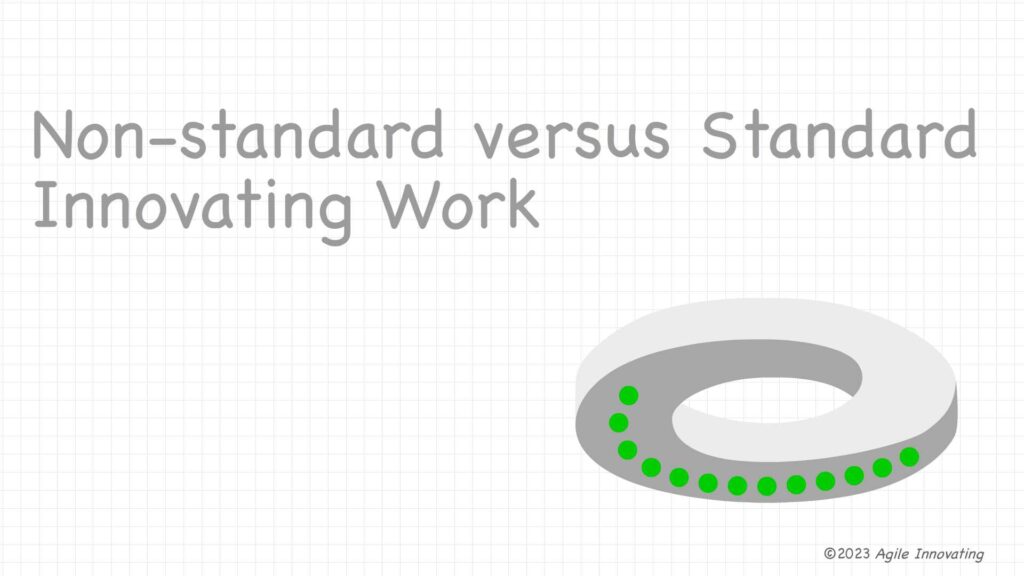
Innovating is composed of two types of work, commonly categorized as Non-standard and Standard Work.
Non-standard Work includes all the activities and skills associated with the Invention of new solutions. This work is considered non-standard because it is exploratory, non-linear, intuitive, and context specific. Even though Inventive work follows a sequence of events, the work itself is not easily decomposed into a reliably repeatable process with planned timeframes.
Standard Work includes all the activities and skills associated with the Delivery of new solutions. This work is considered standard because it exploits existing knowledge, is linear in nature, is sequential in execution, and has tangible outcomes. Delivery work can be decomposed into a reliably repeatable process which can be planned based upon milestones and goals.
The tension between Non-standard Work and Standard Work is the Invention / Delivery Paradox. Resolving the paradox requires effectively managing two different innovating environments utilizing fundamentally different skill sets. Non-standard work involves creative activities depending upon imagination for results. Standard work involves planning activities depending upon execution for results.
The bridge that connects the two kinds of work is the complete specification of a desirable, feasible, viable, product / service / process (PSP) concept. The validated PSP concept ensures clarity for the change you want to make in the User and Supplier experience, and provides the target for the execution needed to deliver a new and better dual solution.
Managing these two very different kinds of work, pivoting around the decision on the PSP concept, is the distinguishing feature of a high hit rate innovating practice.
